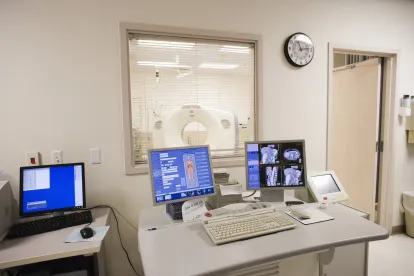As we previewed last week, California Attorney General Xavier Becerra rejected the proposed merger between Adventist Health System/West and St. Joseph Health System (the “Proposed Merger”) in a denial letter issued on October 31, 2019. The Proposed Merger would have created a joint operating company to manage each health system’s facilities in Humboldt, Lake, Mendocino, Napa, Solano, and Sonoma Counties. In this blog post we will be discussing the Attorney General’s review process of hospital transactions and the reasons why this particular transaction may have been rejected. Moreover, we will assess what lessons can be learned going forward for other California healthcare systems and entities undergoing mergers and acquisitions in the future.
Attorney General Review Process
California law requires that nonprofit sellers of healthcare facilities provide notice to and obtain the consent of the state’s Attorney General (the “AG”) in connection with the sale of its assets or the transfer of its control or governance to a for-profit buyer. Prior to issuing a decision, the AG will hold one or more public meetings to determine if the transaction might significantly impact the availability or accessibility of health care services to the applicable community. Members of the public, patients, employees, hospital management, advocates and other interested parties are encouraged to submit written comments regarding the proposed transaction. An independent health impact statement may also be required. [1]
After the review, pursuant to California Corporations Code § 5923, the AG has the discretion to approve, conditionally approve, or reject the proposed transaction, based on the following factors:
-
Whether the terms and conditions of the agreement or transaction are fair and reasonable to the nonprofit;
-
Whether the agreement or transaction will result in inurement to any private person or entity;
-
Whether the agreement or transaction is at fair market value;
-
Whether the market value has been manipulated by the actions of the parties in a manner that causes the value of the assets to decrease;
-
Whether the proposed use of the transaction proceeds is consistent with the charitable trust on which the assets are held by the health facility or affiliated nonprofit health system;
-
Whether the agreement or transaction involves or constitutes any breach of trust;
-
Whether the AG has been provided with sufficient information and data to evaluate adequately the agreement or transaction or the effects thereof on the public;
-
Whether the agreement or transaction has a significant effect on the availability or accessibility of health care services to the affected community;
-
Whether the agreement or transaction is in the public interest; and
-
Whether the agreement or transaction has a significant effect on the availability and accessibility of cultural interests provided by the facility in the affected community.
The Proposed Merger Rejection by the Attorney General
According to the denial letter, the AG came to its decision after carefully considering the factors set forth above. In particular, the letter identifies factors #8 and #9 as weighing against approval of the Proposed Merger. The AG concluded that the proposed transaction is not in the public interest because of the potential for increased health costs and concerns over access and availability of health care services among other considerations.
The Office of the Attorney General issued a press release in connection with the rejection of the Proposed Merger. The press release further clarified that the California Department of Justice considered both California law and feedback from the public in making its determination that the Proposed Merger was not in the public interest. Sean McCluskie, Chief Deputy to the Attorney General, stated that “The California Department of Justice is responsible for ensuring that any proposed sale or transfer of a non-profit health facility protects the health and safety interests of the surrounding community. After careful review we found this proposal falls short of protecting consumers.”
Among the feedback received from the public during the review process, the AG had received comments from various consumer and patient rights groups, including Health Access California, expressing concern that the merger of the religiously-affiliated health systems would further restrict access to certain types of health services, such as reproductive services, gender transition services, and end of life care, especially given that many of the health facilities are located in rural areas where alternative health care options are scarce.
Recent California Hospital Merger Enforcement
Contrary to the AG’s flat-out rejection of the Proposed Merger, the AG’s consent to hospital mergers and acquisitions is often conditional. The AG frequently approves hospital transactions subject to the satisfaction of certain conditions, such as the facility continuing its participation in charity care and other community benefits and maintaining emergency and other essential health services at the same levels as prior to the transaction.[2] Other conditions that are commonly imposed on transactions include maintaining the licensure and operational status of the facility, maintaining certain essential specialty services, continuing to participate in Medicare and Medi-Cal, and submitting yearly compliance reports to the AG.[3]
Attorney General Xavier Becerra has been active in regulating hospital transactions. Earlier this year, Becerra challenged the bankruptcy sale order of two hospitals from the Verity Health System of California to Santa Clara County because the sale order was free and clear of the conditions the AG requested be imposed on the sale. On December 21, 2018, Becerra’s condition consent of the transaction between Dignity Health and Catholic Health Initiatives included 350 pages of conditions.
Looking Forward
It is difficult to say for certain at this point what the AG’s rejection means for the future in the context of hospital mergers and acquisitions in California. However, increased public concern that hospital consolidation might result in higher health care costs and reduce access to care for certain populations seems to be having an impact on the AG’s review of proposed hospital transactions.
Hospital systems may want to consider how best to combat those concerns in their notice to the AG. Health systems may want to strongly emphasize that they will be maintaining all of the same health care services after the transaction as before and communicate how the transaction will further the goal keeping pricing down for consumers. Hospital systems may also want to consider the location of its health facilities and those of its transaction partners when developing a proposed transaction. The AG may see consolidation transactions involving facilities in more remote, rural locations to be less favorable, especially if the parties involved do not provide certain categories of care as a result of religious restrictions.
It remains to be seen whether this rejection heralds heightened involvement by the AG in hospital transactions within the state or if this remains an isolated occurrence.
[1] Cal. Corp. Code §§ 5914 – 5930; 11 CCR § 999.5; State of California Department of Justice Office of the Attorney General, “Nonprofit Health Facility Transaction Notices,” https://oag.ca.gov/charities/nonprofithosp.
[2] https://oag.ca.gov/charities/nonprofithosp
[3] State of California Department of Justice Office of the Attorney General, “Nonprofit Health Facility Transaction Notices,” https://oag.ca.gov/charities/nonprofithosp; Robert L. Schuchard and Sarah S. Fallows, “Surviving the AG Conversion Process: Tips for Nonprofit Hospitals,” https://www.dwt.com/insights/2014/07/surviving-the-ag-conversion-process-tips-for-nonpr.




 />i
/>i

